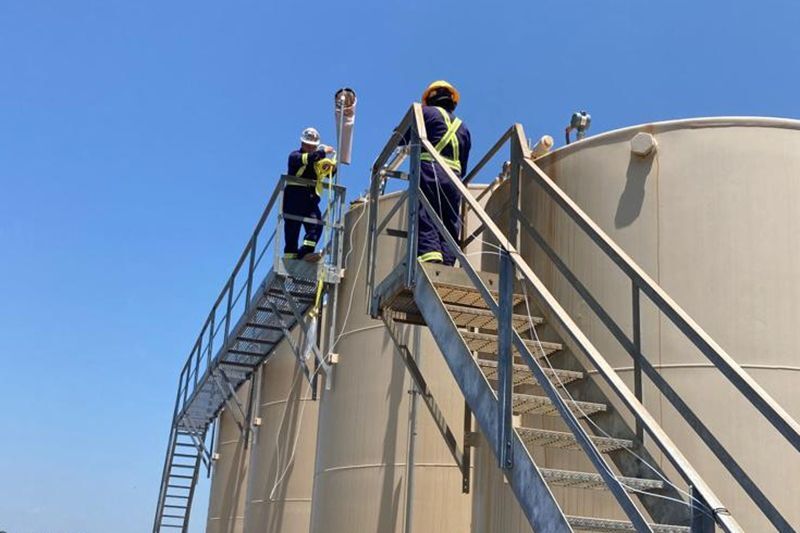Researchers with the University of West Virginia’s Center for Alternative Fuels, Engines and Emissions (CAFEE) will soon focus their research on methane emissions released from liquid storage tanks throughout West Virginia, Pennsylvania, and Ohio. The project, which received $5.5 million in funding from the US Department of Energy, is scheduled to take place over the next 3 years.
Led by Benjamin M. Statler College of Engineering and Mineral Resources Associate Professor Ben Johnson, the project has earned the title STEAM TANKS (Storage Tank Emissions Assessments in the Marcellus to Acquire New Knowledge with Science). The study will measure methane, organic compounds, and air pollutants emitted from liquid storage tanks located “upstream” at extraction sites as well as “midstream” at various sites along the routes that oil and gas take on their way to refining and processing facilities.
“Tank emissions and leak rates have been highly variable for methane and other volatile organic compounds, so we need a better understanding of their activity. Then we can improve models for predicting emissions and ultimately develop solutions to mitigate them,” Johnson said in a press release.
“We’ll work with site operators to document factors that can contribute to methane emissions: temperatures and pressures, production and throughput, internal chemical composition of liquid and vapor phases, as well as factors such as open or damaged valves, hinges or seals.”
Johnson said he believes the project has the potential to generate findings with impact on national and global practices and technologies.
“This research is pivotal to developing a deeper understanding of tank emissions of methane and other gases, so that industry can develop best practices or deploy technologies for reducing those emissions,” he shared.

